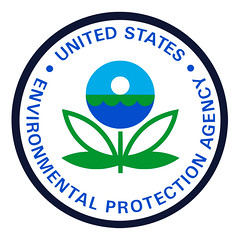
This was a victory worth savoring.
The US Supreme Court in a 9-0 ruling overturned a lower court decision denying judicial review of an enforcement action decision by the US EPA assertion that their property was a wetland.
You may have seen this story on TV. It is a classic David and Goliath story of the government seeking to use its regulatory authority under the Clean Water Act to force these Idaho property owners to stop construction of a new home and restore the land to its original condition. Fighting that decision virtually bankrupted the property owners.
When the Sackett’s asked the US EPA to reconsider its wetland decision EPA but rejected their request. When the Sackett’s sued the EPA decision in court, a Federal district court judges ruled the EPA’s compliance orders are not subject to judicial review.
What?
That was essentially the issue before the Supreme Court—can the EPA be sued? Now we have the answer 9-0—you bet your sweet cease and desist order they can!
Justice Scalia writing for the majority opined:
. . .the Government notes that Congress passed the Clean Water Act in large part to respond to the inefficiency of then-existing remedies for water pollution. Compliance orders can obtain quick remediation through voluntary compliance. The Government warns that the EPA is less likely to use the orders if they are subject to judicial review. That may be true—but it will be true for all agency actions subjected to judicial review…. And there is no reason to think that the Clean Water Act was uniquely designed to enable the strong-arming of regulated parties into “voluntary compliance” without the opportunity for judicial review—even judicial review of the question whether the regulated party is within the EPA’s jurisdiction.”
I have ranted about this before—our regulatory process is out of control. The action by the US EPA in this case demonstrates in stark black and white terms how an administrative agency and its bureaucrats sought to avoid judicial review and accountability to enforce their version of view of ‘truth, justice and the American way’ in ways the rest of us find unreasonable, unfair and sometimes unlawful.
the truth is this was amateur hour at the US EPA. They got they facts wrong in this case. But instead of remedying the situation they took offense that the property owners would challenge them. The case then turned into a grudge match. But when forced to defend its position the Government’s own admission in Sackett was, as Scalia notes, that its heavy hand is less likely to be used if the agency and its officers are going to be held accountable in court for their actions.
To which the rest of us reply—It is about time!
Related articles
- Supreme Court Sides With Property Owners in Wetlands Dispute With USEPA (legalplanet.wordpress.com)
- Water rulings can face lawsuits (politico.com)
- Supreme Court Rules Unanimously Against EPA “Strong-Arming of Regulated Parties” (reason.com)
- Supreme Court backs landowners in EPA clean water case (reuters.com)
- Court backs Idaho couple in battle with EPA (washingtontimes.com)
- Court ruling may change EPA enforcement of Clean Water Act. (kitsapalliance.wordpress.com)
